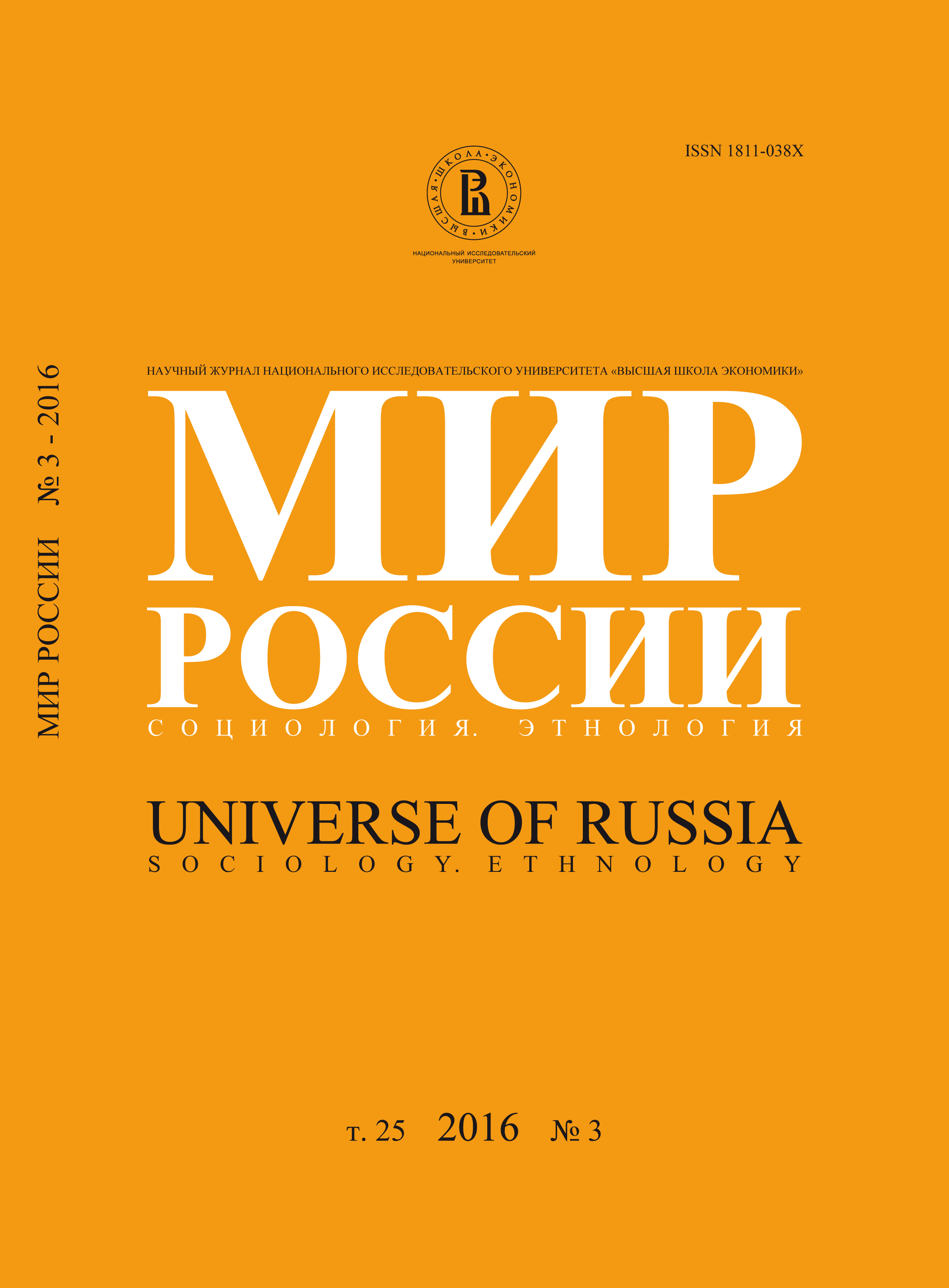The Context of Social Transformations in the Post-Soviet Years:Economic, Institutional and Demographic Dynamics
Abstract
Sergey Smirnov – Doctor in Economics, Head of the Centre Centre for Social Programs and Risk Analysis,Institute for Social Policy, Higher School of Economics. Address: 20 Myasnitskaya St., Moscow, 101000,Russian Federation. E-mail: socpol@hse.ru
This article looks back at the main transformations in Russia over the last quarter of a century. It is argued that they have radically changed the image of Russia as «primus inter pares» in the former USSR. Special attention is paid to several key factors which have brought about the new social structure: property relations, the labour market system, the demographic situation and consumer behaviour. All of the related processes and changes are traced using data from Federal State Statistics Service (Rosstat). Younger generations of Russians have difficulty understanding the peculiar features of the «economy of shortage», just as the generations which grew up during the Soviet era have difficulty understanding today’s «economy of surplus».
Young people believe in the so-called free education and free medical care and social justice in the former USSR. This might explain why the former social and economic system is today being idealized not only by the elderly people, but by the younger generations as well. Moreover, such peculiar nostalgia is spreading because certain social groups (i.e. Soviet intellectuals, who expressed the most scepticism towards socialism, and associated groups are disappearing for demographic reasons, whereas several newly established social groups) (such as entrepreneurs, self-employed and free-lancers) were never even possible in the Soviet economy. The article concludes by evaluating the degree of stability of Russia’s new social structure. The recent events of 2014–2016 have demonstrated that a substantial number of Russians appear to be ready to change their perceptions again. The Soviet idea of state prevalence over private initiative which was once rejected in the 1990s is returning to Russians’ everyday life.






